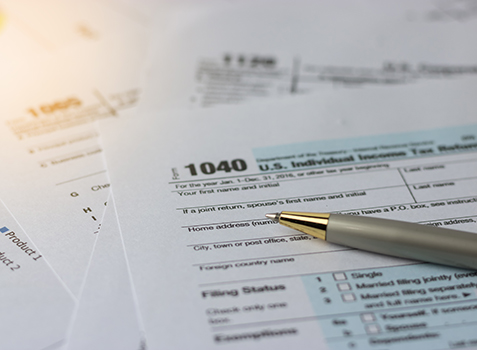Learn
Our Tax System
Voluntary Compliance
How does the government collect taxes?
- The government relies on individuals to file and pay their taxes based on the honor system. This is also called voluntary compliance.
- Voluntary compliance means that we are expected to file an accurate tax return. It must be filed on time and without government involvement. We must also keep accurate records.
- However, filing and paying taxes is not truly voluntary. Failure to follow the rules can result in fines, interest charges, and even criminal charges.

Progressive Taxes
- Progressive taxes are taxes that increase in proportion to income.
- Federal taxes are progressive.
- Somone with a lower income might pay no taxes at all. Someone with a higher income will pay a larger percentage in tax.

Regressive Taxes
- Regressive taxes are taxes that take a smaller share of income as the amount of income grows.
- Sales taxes are regressive. If your income is low, sales tax represents a larger percentage of your income. If your income is high, sales tax represents a smaller percentage of your income.
- For example, if the current sales tax is 5% and you purchase something for $10, you will pay $10.50 for the item. If you make $50 per week, this 50 cents for sales tax is 1% of your income. If you make $100 a week, this 50 cents only represents a half of a percent of your income.
- It is easier for a person with higher income to afford sales tax than a person with lower income.
Proportional Taxes
- Proportional taxes are taxes for which the rate stays the same regardless of income.
- Proportional taxes are also called flat taxes.
- Property taxes are proportional taxes. In most cases, you will pay a percentage of the value of the property you own in tax. No matter how much the property is worth, the tax rate is the same.
